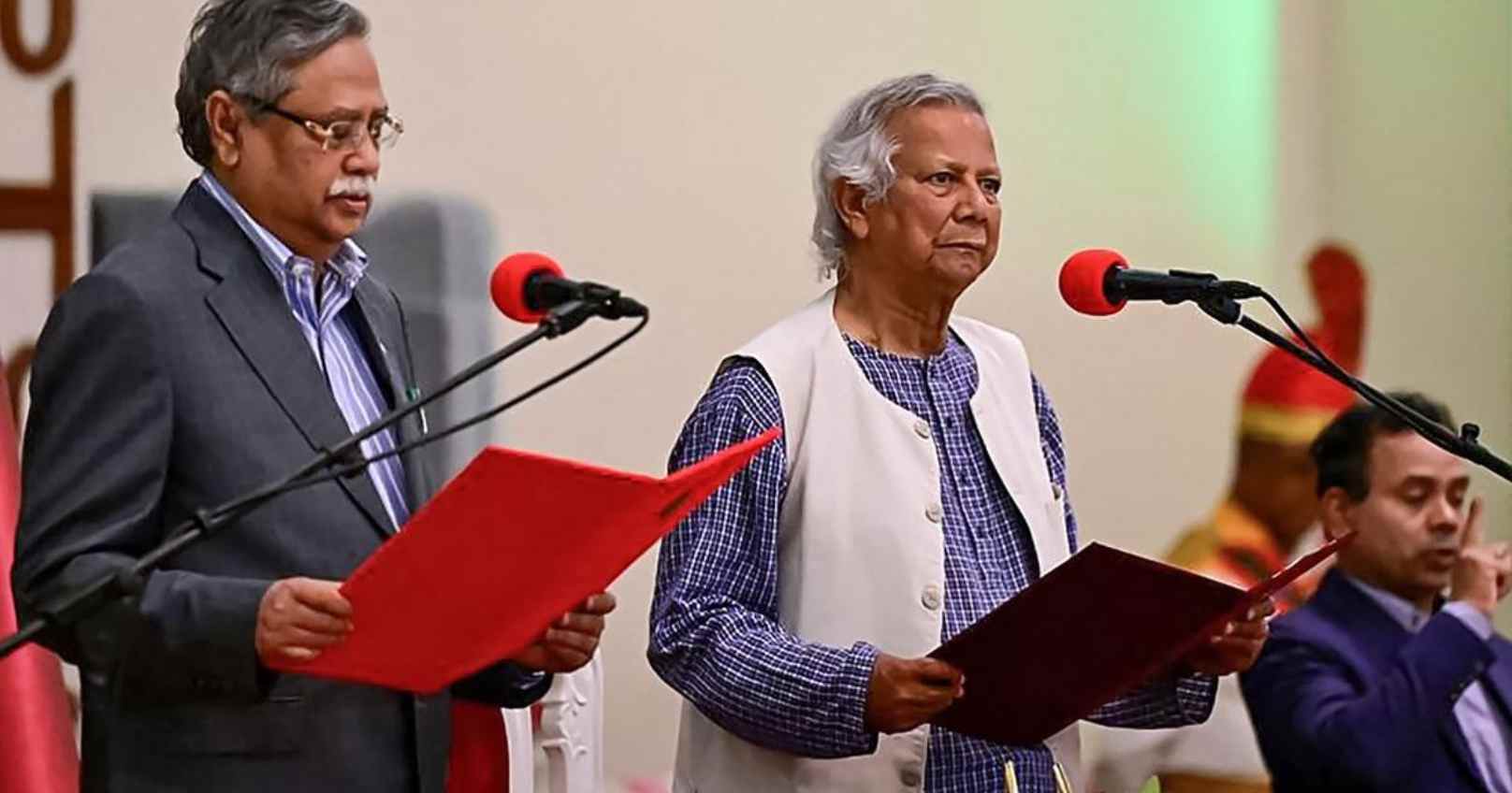Newly appointed Chief Adviser Professor Muhammad Yunus pledged to take firm action against those responsible for inciting chaos, as Bangladesh seeks to restore order following weeks of violent protests and the ousting of former Prime Minister Sheikh Hasina.
In his first national address, Yunus, an 84-year-old Nobel Peace Prize winner, sternly warned that law enforcement would rigorously pursue those who had fueled disorder in the country.
"Those who have sown discord and fear to derail our journey toward a second independence, born out of the student-led uprising, will face the full power of our law enforcement agencies. Anarchy is our adversary, and it must be swiftly vanquished," Yunus stated.
Yunus assumed office as the head of the interim government after President Mohammed Shahabuddin dissolved parliament, leading to Sheikh Hasina's resignation and subsequent flight to India. In his role as chief adviser, equivalent to the prime minister, Yunus vowed to lead a government committed to ensuring the safety and security of its citizens.
A 16-member council of advisers was also sworn in on Thursday to support Yunus in managing the caretaker government. This temporary administration is tasked with leading the nation through a transitional period until elections can be held to establish a new, democratically elected government.
The advisory council includes notable figures such as Nahid Islam and Asif Mahmud, student leaders who were instrumental in the anti-quota protests that grew into a nationwide movement against Hasina's Awami League government.
Yunus, who was awarded the Nobel Peace Prize in 2006 for his groundbreaking work in microfinance, expressed deep appreciation for the youth who drove the successful protest movement. He referred to the regime change as the country's "second independence" and described the day as one of great pride.
His appeal for an end to violence was positively received by the United States. State Department spokesperson Matthew Miller expressed America's readiness to collaborate with the interim government in guiding Bangladesh toward a democratic future.
Meanwhile, former Prime Minister Sheikh Hasina's associates, who had sought refuge in India, reportedly departed for undisclosed locations abroad on Thursday. The Indian government has granted Hasina, 76, temporary refuge until she secures asylum in another country.
The situation in Bangladesh remains tense, with weeks of unrest resulting in over 560 deaths since mid-July, according to local reports. The violence, which intensified following Sheikh Hasina's ouster, has claimed 232 lives since Monday alone.
The instability has also led to targeted attacks on Hindus, as extremist factions exploited the turmoil to carry out widespread acts of arson, vandalism, and violence against Hindu temples, homes, and businesses.
In light of the escalating violence, over 7,200 Indian students returned to India before August 1, as reported to the Rajya Sabha on Thursday. Minister of State for External Affairs Kirti Vardhan Singh informed that approximately 19,000 Indian citizens, including more than 9,000 students, remain in Bangladesh.







